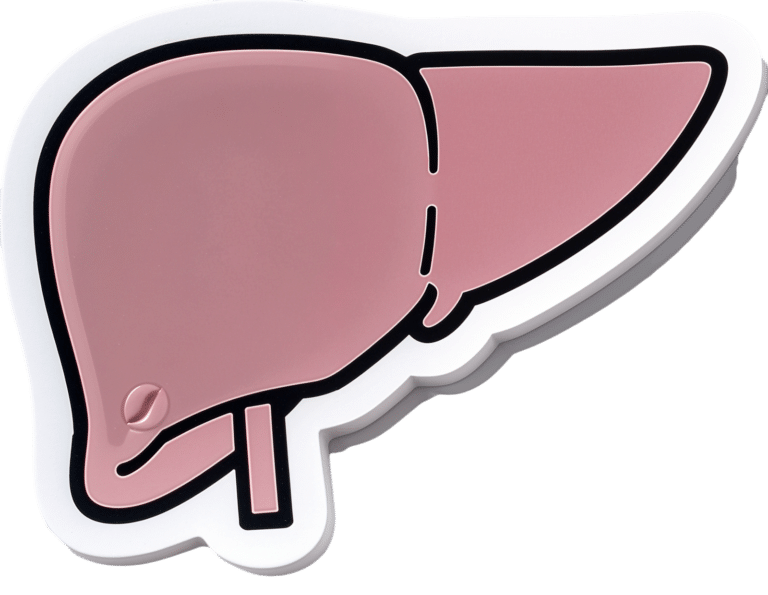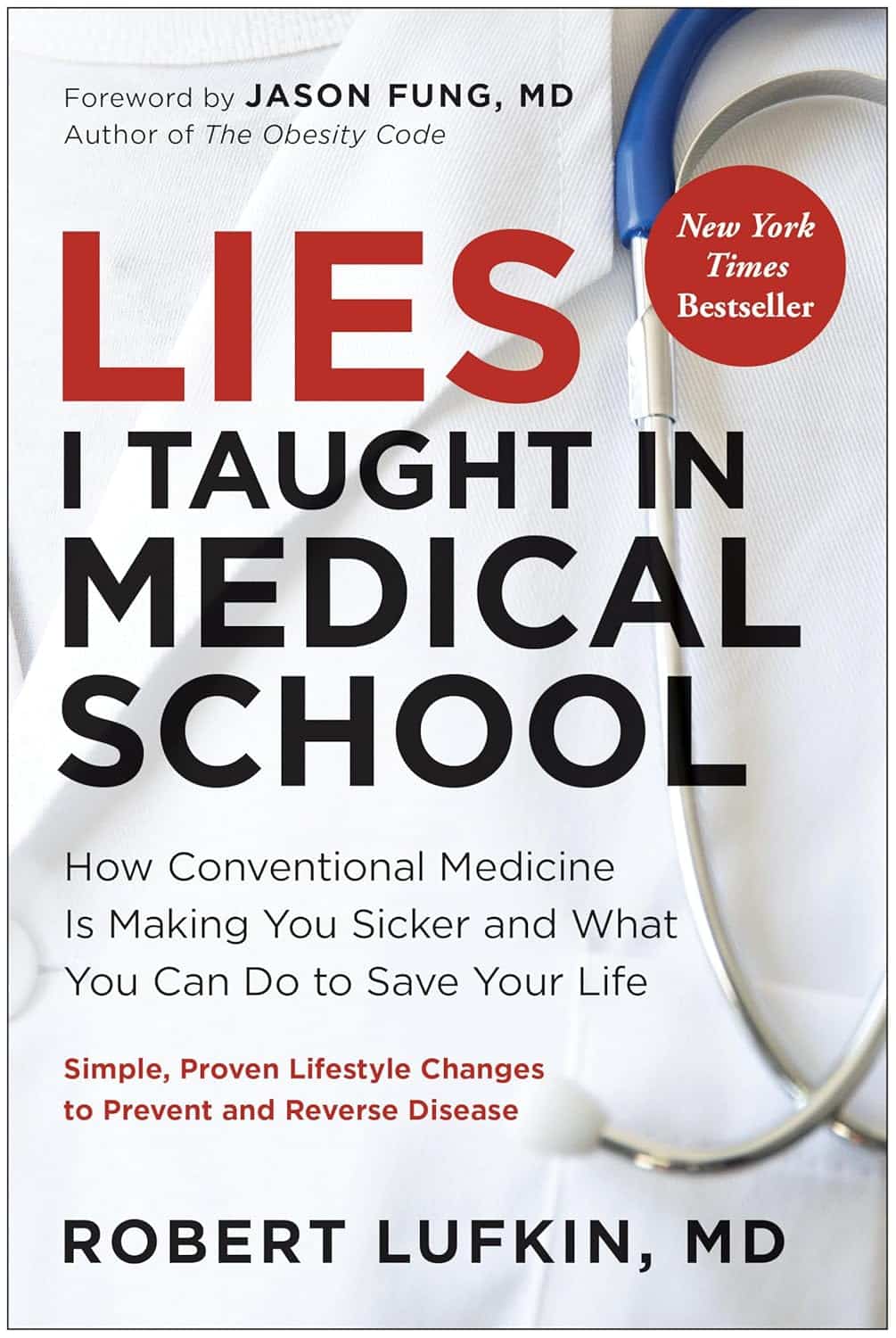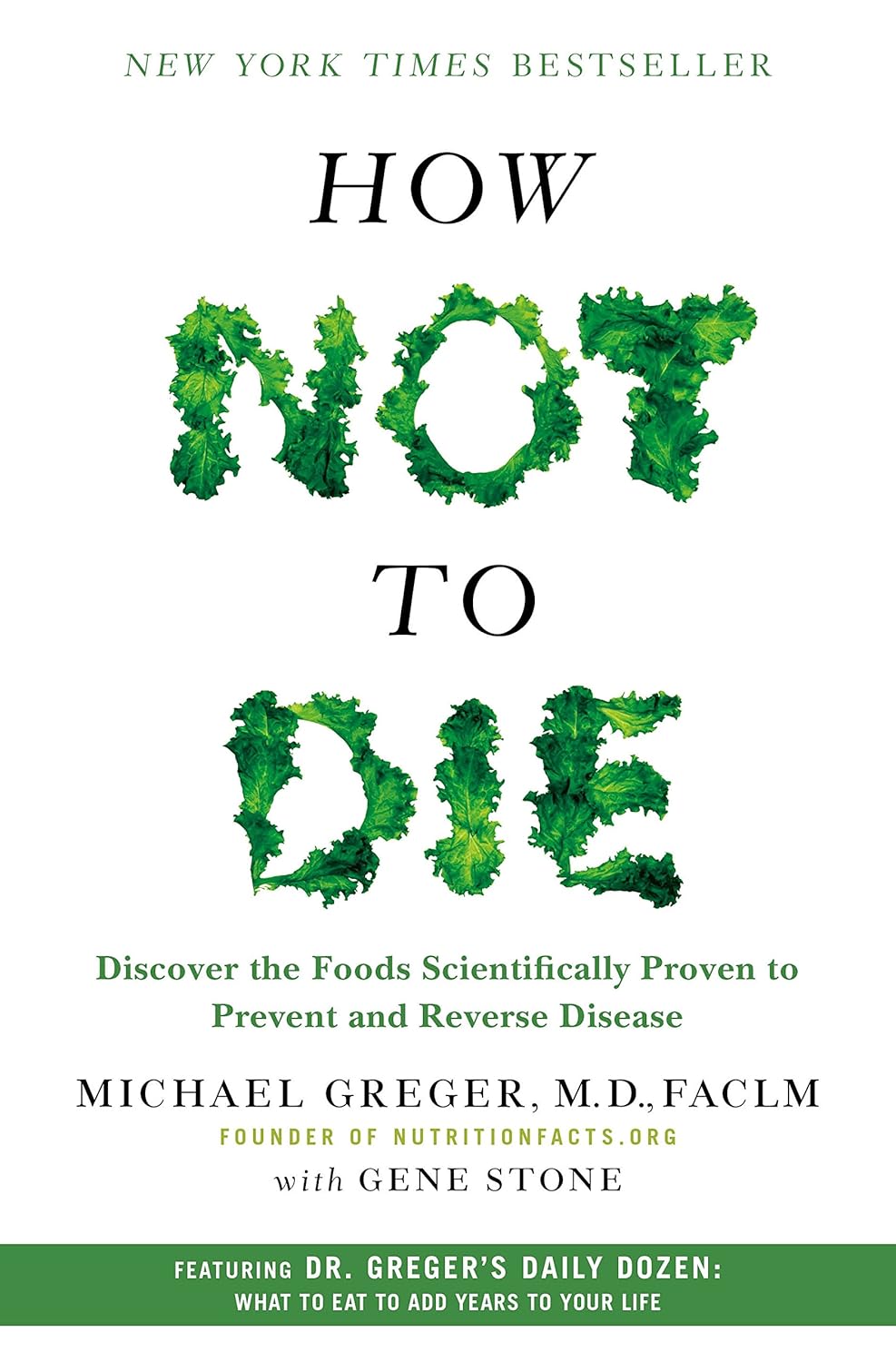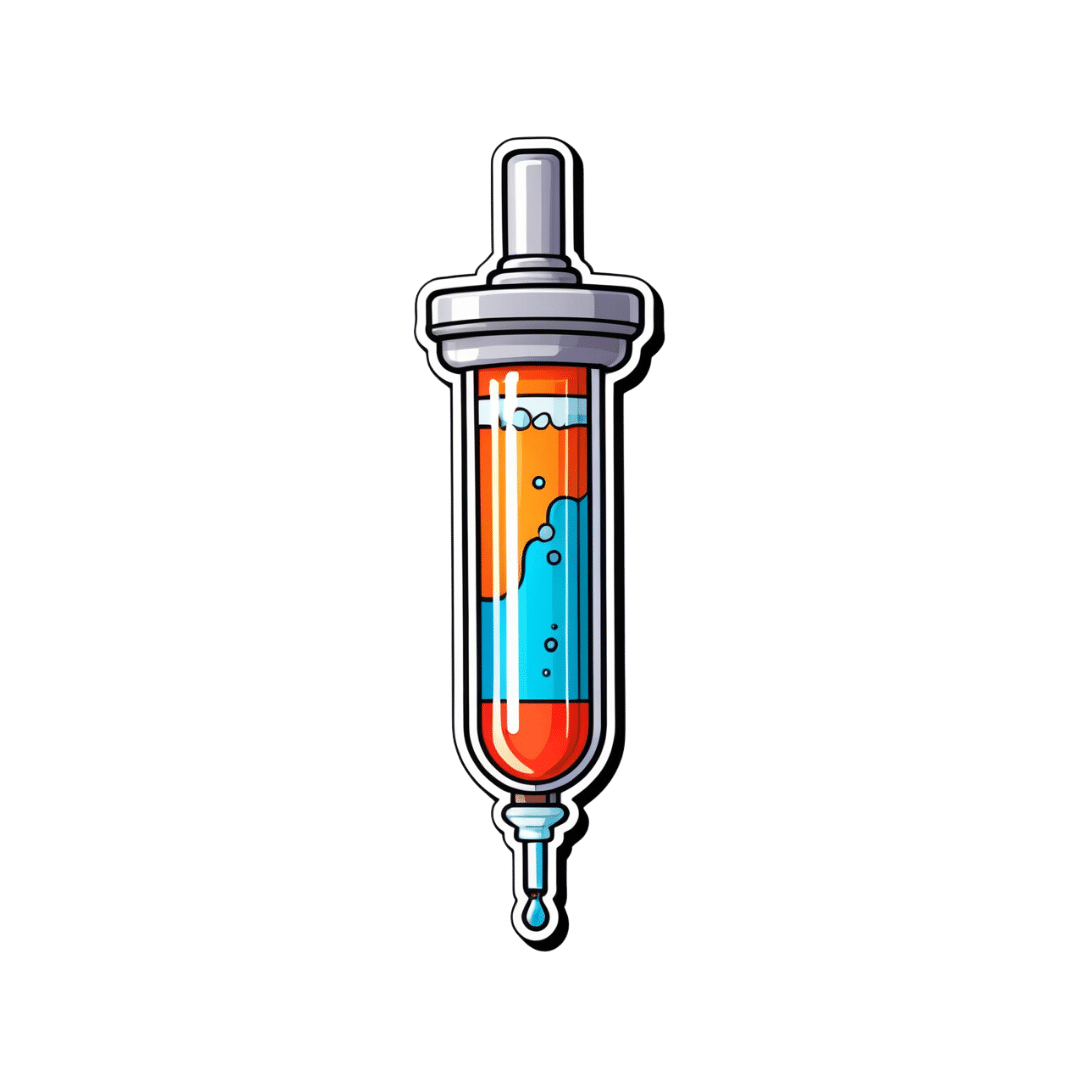
How do I handle it if my parent is refusing aged care? 4 things to consider
10almonds is reader-supported. We may, at no cost to you, receive a portion of sales if you purchase a product through a link in this article.
It’s a shock when we realise our parents aren’t managing well at home.
Perhaps the house and garden are looking more chaotic, and Mum or Dad are relying more on snacks than nutritious meals. Maybe their grooming or hygiene has declined markedly, they are socially isolated or not doing the things they used to enjoy. They may be losing weight, have had a fall, aren’t managing their medications correctly, and are at risk of getting scammed.
You’re worried and you want them to be safe and healthy. You’ve tried to talk to them about aged care but been met with swift refusal and an indignant declaration “I don’t need help – everything is fine!” Now what?
Here are four things to consider.
1. Start with more help at home
Getting help and support at home can help keep Mum or Dad well and comfortable without them needing to move.
Consider drawing up a roster of family and friends visiting to help with shopping, cleaning and outings. You can also use home aged care services – or a combination of both.
Government subsidised home care services provide from one to 13 hours of care a week. You can get more help if you are a veteran or are able to pay privately. You can take advantage of things like rehabilitation, fall risk-reduction programs, personal alarms, stove automatic switch-offs and other technology aimed at increasing safety.
Call My Aged Care to discuss your options.

Nadino/Shutterstock
2. Be prepared for multiple conversations
Getting Mum or Dad to accept paid help can be tricky. Many families often have multiple conversations around aged care before a decision is made.
Ideally, the older person feels supported rather than attacked during these conversations.
Some families have a meeting, so everyone is coming together to help. In other families, certain family members or friends might be better placed to have these conversations – perhaps the daughter with the health background, or the auntie or GP who Mum trusts more to provide good advice.
Mum or Dad’s main emotional support person should try to maintain their relationship. It’s OK to get someone else (like the GP, the hospital or an adult child) to play “bad cop”, while a different person (such as the older person’s spouse, or a different adult child) plays “good cop”.
3. Understand the options when help at home isn’t enough
If you have maximised home support and it’s not enough, or if the hospital won’t discharge Mum or Dad without extensive supports, then you may be considering a nursing home (also known as residential aged care in Australia).
Every person has a legal right to choose where we live (unless they have lost capacity to make that decision).
This means families can’t put Mum or Dad into residential aged care against their will. Every person also has the right to choose to take risks. People can choose to continue to live at home, even if it means they might not get help immediately if they fall, or eat poorly. We should respect Mum or Dad’s decisions, even if we disagree with them. Researchers call this “dignity of risk”.
It’s important to understand Mum or Dad’s point of view. Listen to them. Try to figure out what they are feeling, and what they are worried might happen (which might not be rational).
Try to understand what’s really important to their quality of life. Is it the dog, having privacy in their safe space, seeing grandchildren and friends, or something else?
Older people are often understandably concerned about losing independence, losing control, and having strangers in their personal space.
Sometimes families prioritise physical health over psychological wellbeing. But we need to consider both when considering nursing home admission.
Research suggests going into a nursing home temporarily increases loneliness, risk of depression and anxiety, and sense of losing control.
Mum and Dad should be involved in the decision-making process about where they live, and when they might move.
Some families start looking “just in case” as it often takes some time to find the right nursing home and there can be a wait.
After you have your top two or three choices, take Mum or Dad to visit them. If this is not possible, take pictures of the rooms, the public areas in the nursing home, the menu and the activities schedule.
We should give Mum or Dad information about their options and risks so they can make informed (and hopefully better) decisions.
For instance, if they visit a nursing home and the manager says they can go on outings whenever they want, this might dispel a belief they are “locked up”.
Having one or two weeks “respite” in a home may let them try it out before making the big decision about staying permanently. And if they find the place unacceptable, they can try another nursing home instead.
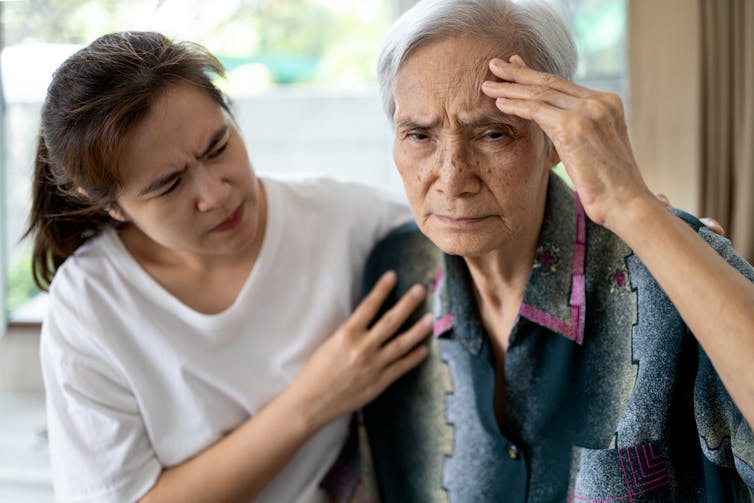
CGN089/Shutterstock
4. Understand the options if a parent has lost capacity to make decisions
If Mum or Dad have lost capacity to choose where they live, family may be able to make that decision in their best interests.
If it’s not clear whether a person has capacity to make a particular decision, a medical practitioner can assess for that capacity.
Mum or Dad may have appointed an enduring guardian to make decisions about their health and lifestyle decisions when they are not able to.
An enduring guardian can make the decision that the person should live in residential aged care, if the person no longer has the capacity to make that decision themselves.
If Mum or Dad didn’t appoint an enduring guardian, and have lost capacity, then a court or tribunal can appoint that person a private guardian (usually a family member, close friend or unpaid carer).
If no such person is available to act as private guardian, a public official may be appointed as public guardian.
Deal with your own feelings
Families often feel guilt and grief during the decision-making and transition process.
Families need to act in the best interest of Mum or Dad, but also balance other caring responsibilities, financial priorities and their own wellbeing.
Lee-Fay Low, Professor in Ageing and Health, University of Sydney
This article is republished from The Conversation under a Creative Commons license. Read the original article.
Don’t Forget…
Did you arrive here from our newsletter? Don’t forget to return to the email to continue learning!
Recommended
Learn to Age Gracefully
Join the 98k+ American women taking control of their health & aging with our 100% free (and fun!) daily emails:
-
Dyslexia Test
10almonds is reader-supported. We may, at no cost to you, receive a portion of sales if you purchase a product through a link in this article.
(and it’s mostly not about reading/writing!)
More than just shuffled letters
This video provides a self-test based on the Bangor Dyslexia Test (BDT). The BDT is 94% accurate in identifying dyslexia, and it includes 9 parts, with a mix of questions and tasks. Answering “yes” or struggling with tasks indicates possible dyslexia. Collecting 4+ indicators suggests dyslexia, but of course is not a replacement for official diagnosis.
It’s best to watch the video if you can, but here’s what to expect:
- Left-Right confusion: point your left hand to your right/left shoulder.
- Family history: any family members with dyslexia or struggles with reading/writing?
- Repeating numbers (order): repeat a given sequence of numbers in order.
- Letter confusion (e.g. b/d): do you confuse letters like “b” and “d” beyond age 8?
- Times tables: recite the 6, 7, and 8 times tables.
- Word manipulation: replace the letters in a word to create a new word, e.g. change “slide” (s ⇾ g) to “glide.”
- Repeating numbers (reversed): repeat a given sequence of numbers in reverse order.
- Months in reverse: recite the months of the year in reverse order.
- Subtraction: do you struggle with subtraction, e.g. 44-9 or 55-12?
Writer’s anecdote: I am not dyslexic, and/but I have an impressive level of dyscalculia (the purely numerical equivalent), to the point I’ll sometimes use a calculator to do single-digit calculations, and I am so bad at calculating ages or other differences between dates (I will have to count on my fingers or else run the severe risk of out-by-one errors). I have also been known to make mistakes counting down from 10, which really ruins dramatic tension.
In contrast, the left-right thing is interesting, because when I was first learning Arabic, I had no trouble reading/writing right-to-left, but I initially struggled so much to remember which way the “backspace” key would take me (in Arabic the backspace key backspaces to the right, despite still pointing to the left).
Anyway, for the test itself, enjoy:
Click Here If The Embedded Video Doesn’t Load Automatically!
Want to learn more?
You might also like to read:
Reading, Better (Reading As A Cognitive Exercise)
Take care!
Share This Post
-
Lies I Taught in Medical School – by Dr. Robert Lufkin
10almonds is reader-supported. We may, at no cost to you, receive a portion of sales if you purchase a product through a link in this article.
There seems to be a pattern of doctors who practice medicine one way, get a serious disease personally, and then completely change their practice of medicine afterwards. This is one of those cases.
Dr. Lufkin here presents, on a chapter-by-chapter basis, the titularly promised “lies” or, in more legally compliant speak (as he acknowledges in his preface), flawed hypotheses that are generally taught as truths. In many cases, the “lie” is some manner of “xyz is normal and nothing to worry about”, and/or “there is nothing to be done about xyz; suck it up”.
The end result of the information is not complicated—enjoy a plants-forward whole foods low-carb diet to avoid metabolic diseases and all the other things to branch off from same (Dr. Lufkin makes a fair case for metabolic disease leading to a lot of secondary diseases that aren’t considered metabolic diseases per se). But, the journey there is actually important, as it answers a lot of questions that are much less commonly understood, and often not even especially talked-about, despite their great import and how they may affect health decisions beyond the dietary. Things like understanding the downsides of statins, or the statistical models that can be used to skew studies, per relative risk reduction and so forth.
Bottom line: this book gives the ins and outs of what can go right or wrong with metabolic health and why, and how to make sure you don’t sabotage your health through missing information.
Click here to check out Lies I Taught In Medical School, and arm yourself with knowledge!
Share This Post
-
How Not To Die – by Dr. Michael Greger
10almonds is reader-supported. We may, at no cost to you, receive a portion of sales if you purchase a product through a link in this article.
We previously reviewed this book some years ago, but we’re revisiting it now because:
- It really is a book that should be in every healthspan-enjoyer’s collection
- Our book reviews back then were not as comprehensive as now (though we still generally try to fit into the “it takes about one minute to read this review” idea, sometimes we’ll spend a little extra time).
Dr. Greger (of “Dr. Greger’s Daily Dozen” fame) outlines for us in cold hard facts and stats what’s most likely to be our cause of death. While this is not a cheery premise for a book, he then sets out to work back from there—what could have prevented those specific things?
Thus, while the book doesn’t confer immortality (the title is not “how to not die”, after all), it does teach us how not to die—i.e, from heart disease, lung diseases, brain diseases, digestive cancers, infections, diabetes, high blood pressure, liver disease, blood cancers, kidney disease, breast cancer, suicidal depression, prostate cancer, Parkinson’s disease, and even iatrogenic causes.
This it does with a lot of solid science, explained for the layperson, and/but without holding back when it comes to big words, and a lot of them, at that. If you want to add in daily exercises, just lifting the book could be a start; weighing in at 678 pages, it’s an information-dense tome that’s more likely to be sifted through than read cover-to-cover.
The style is thus dense science somewhat editorialized for lay readability, and well-evidenced with around 3,000 citations. That’s not a typo; there are 178 pages of bibliography at the back with about 15–20 scientific references per page.
In terms of practical use, he does also devote chapters to that, it’s not just all textbook. Indeed, he discusses the reasonings behind the items, portion sizes, and quantities of his “daily dozen” foods, so that the reader will understand how much bang-for-buck they deliver, and then it’ll seem a lot less like an arbitrary list, and more likely to be adopted and maintained.
Bottom line: if you care about not getting life-threatening illnesses (which at the end of the day, come to most people at some point), then this book is a must-read.
Share This Post
Related Posts
-
Apricots vs Peaches – Which is Healthier?
10almonds is reader-supported. We may, at no cost to you, receive a portion of sales if you purchase a product through a link in this article.
Our Verdict
When comparing apricots to peaches, we picked the apricots.
Why?
Both are great! But there’s a clear winner:
In terms of macros, apricots have more fiber and, which is less important because the numbers are small, more protein. Apricots do also have more carbs, and/but carbs from whole fruit are not a problem for most people (especially because of the fiber), unless undertaking a very carb-controlled diet.
When it comes to vitamins, apricots sweep with more of vitamins A, B1, B2, B5, B6, B9, C, E, & K. Peaches meanwhile boast more vitamin B3, and that only marginally, as well as more choline.
In the category of minerals, apricots sweep again with more calcium, copper, iron, magnesium, manganese, phosphorus, potassium, and zinc. Peaches are not higher in any minerals.
Finally, if we consider polyphenols, apricots sweep yet again. The flavonols that peaches have, apricots have more of, and apricots have a long list of flavonols that peaches don’t.
Outside of flavonols, there is one (1) phenolic acid that peaches have more of (it’s 3-Caffeoylquinic acid), and it’s only slightly more, and it’s mostly in the skin which isn’t included if you buy your fruit ready-chopped. So in those cases, apricots would have the higher 3-Caffeoylquinic acid content anyway.
All in all, with their higher content of fiber, vitamins, minerals, and polyphenols, apricots easily win the day.
Enjoy both, though! Diversity is healthy!
Want to learn more?
You might like to read:
- Dried Apricots vs Dried Prunes – Which is Healthier?
- Which Sugars Are Healthier, And Which Are Just The Same? ← we know we link this one a lot, but we think it’s important for everyone to know how fruit is good and juice isn’t (and why, less that seem bizarrely arbitrary)
Take care!
Don’t Forget…
Did you arrive here from our newsletter? Don’t forget to return to the email to continue learning!
Learn to Age Gracefully
Join the 98k+ American women taking control of their health & aging with our 100% free (and fun!) daily emails:
-
Here’s To Getting Assuredly Good Health
10almonds is reader-supported. We may, at no cost to you, receive a portion of sales if you purchase a product through a link in this article.
An unusual amount of excitement in the health news world this week, with health insurance in the spotlight:
Deny, Delay, Depose?
Insurance company UnitedHealthcare, which used AI with a 90% error rate to deny insurance claims (of which, disproportionately denying insurance claims of the elderly), has come under extra public scrutiny this week for its recent-years business practices:
❝Nearly 1 in 5 insured adults experienced claim denials during a 12-month period.
Those with job-based insurance or Affordable Care Act policies ran into this problem about twice as often as those covered by Medicare or Medicaid❞
…although, the company has dramatically increased its care denials for Medicare Advantage enrollees, doubling the rate of denials as it implemented its new, automated denials process.
Anesthesiologist Dr. Brain Schmutzler noted:
❝We have a bigger issue with the insurance companies in general, who, essentially, it’s their job to make money, not to actually pay for health care❞
And in those cases where healthcare is not denied, it is often dangerously delayed, as insurance companies can stall for time to decide whether they’re going to pay or not.
One useful take-away from all of this is that if your insurance claim is denied, consider fighting it, as often they can be overturned.
Specifically, it can be good to insist on knowing who (named persons) was involved in the denial process, and their qualifications. Once upon a time, this was mostly unqualified interns, which prompted insurance companies to reverse the denial rather than admit that; nowadays it’s mostly AI, which many companies can hope will shield them from culpability—either way, fighting for one’s rights can often be successful.
Read in full: Killing of UnitedHealthcare CEO prompts flurry of stories on social media over denied insurance claims
Related: With Medical Debt Burdening Millions, a Financial Regulator Steps In to Help
Rest Easy
Health insurer Elevance Health (formerly Anthem Blue Cross Blue Shield), had last month announced plans to limit its coverage for anesthesia used in operations, whereby they would pay for only a certain amount of anesthetic, and if the procedure was still ongoing when that amount had been used, then well, you were on your own.
However, on Thursday afternoon and allegedly completely coincidentally in the wake of the Wednesday assassination of the CEO who oversaw the denial of so many health insurance claims, this decision to limit paying for anesthesia was reversed, retracted, and they are now doing their best to downplay what the proposal would have meant for anesthesiologists and patients:
Read in full: Insurance company halts plan to put time limits on coverage for anesthesia during surgery
Related: The Insider’s Guide To Making Hospital As Comfortable As Possible ← an anesthesiologist’s tips
Getting a good grip of your health
What’s the best indicator of good health when it comes to age-related health issues? It’s not BMI! Could it be blood pressure? It could, but the news presently is about grip strength.
While training to have an amazing grip (and neglecting all else) will not necessarily increase your general healthspan, having a weak or strong grip is strongly associated with, respectively, having weak or strong general health in later years.
This is because unless someone has been training very unnaturally, grip strength is a good general measure of overall muscle strength, which in turn is a good indicator of metabolic health, as well as bodily robustness.
Read in full: Handgrip strength is a reliable predictor for age-related disease and disability, finds study
Related: Resistance Is Useful! (Especially As We Get Older)
Take care!
Don’t Forget…
Did you arrive here from our newsletter? Don’t forget to return to the email to continue learning!
Learn to Age Gracefully
Join the 98k+ American women taking control of their health & aging with our 100% free (and fun!) daily emails:
-
When should you get the updated COVID-19 vaccine?
10almonds is reader-supported. We may, at no cost to you, receive a portion of sales if you purchase a product through a link in this article.
Updated COVID-19 vaccines are now available: They’re meant to give you the best protection against the strain of the virus that is making people severely sick and also causing deaths.
Many people were infected during the persistent summer wave, which may leave you wondering when you should get the updated vaccine. The short answer is that it depends on when you last got infected or vaccinated and on your particular level of risk.
We heard from six experts—including medical doctors and epidemiologists—about when they recommend getting an updated vaccine. Read on to learn what they said. And to make it easy, check out the flowchart below.
A flowchart to help you decide when is the best time to get the 2024-2025 updated COVID-19 vaccine. If I was infected with COVID-19 this summer, when should I get the updated vaccine?
All the experts we spoke to agreed that if you were infected this summer, you should wait at least three months since you were infected to get vaccinated.
“Generally, an infection may be protective for about three months,” Dr. Ziyad Al-Aly, chief of research and development at the Veterans Affairs St. Louis Health Care System, tells PGN. “If they got infected three or more months ago, it is a good idea to get vaccinated sooner than later.”
This three-month rule applies if you got vaccinated over the summer, which may be the case for some immunocompromised people, adds Dr. Peter Chin-Hong, professor of medicine at the University of California, San Francisco.
If I didn’t get infected with COVID-19 this summer, when should I get vaccinated?
Most of the experts we talked to say that if you didn’t get infected with COVID-19 this summer, you should get the vaccine as soon as possible. Dr. Peter Hotez, dean of the National School of Tropical Medicine at Baylor College of Medicine, emphasizes that if this applies to you, you should get vaccinated as soon as possible, especially given the current COVID-19 surge.
Al-Aly agrees. “Vaccine-derived immunity lasts for several months, and it should cover the winter season. Plus, the current vaccine is a KP.2-adapted vaccine, so it will work most optimally against KP.2 and related subvariants [such as] KP.3 that are circulating now,” Al-Aly says. “We don’t know when the virus will mutate to a variant that is not compatible with the KP.2 vaccine.”
Al-Aly adds that if you’d rather take the protection you can get right now, “It may make more sense to get vaccinated sooner than later.”
This especially applies if you’re over 65 or immunocompromised and you haven’t received a COVID-19 vaccine in a year or more because, as Chin-Hong adds, “that is the group that is being hospitalized and disproportionately dying now.”
Some experts—including epidemiologist Katelyn Jetelina, author of newsletter Your Local Epidemiologist—also say that if you’re younger than 65 and not immunocompromised, you can consider waiting and aiming to get vaccinated before Halloween to get the best protection in the winter, when we’re likely to experience another wave because of the colder weather, gathering indoors, and the holidays.
“I am more worried about the winter than the summer, so I would think of October (some time before Halloween) as the ‘Goldilocks moment’—not too early, not too late, but just right,” Chin-Hong adds. Time it “such that your antibodies peak during the winter when COVID-19 cases are expected to exceed what we are seeing this summer.”
My children are starting school—should I get them vaccinated now?
According to most experts we spoke to, now is a good time to get your children vaccinated.
Jennifer Nuzzo, professor of epidemiology and director of the Pandemic Center at the Brown University School of Public Health, adds that “with COVID-19 infection levels as high as they are and increased exposures in school,” now is a particularly good time to get an updated vaccine if people haven’t gotten COVID-19 recently.
Additionally, respiratory viruses spike when kids are back in school, so “doing everything you can to reduce your child’s risk of infection can help protect families and communities,” says epidemiologist Jessica Malaty Rivera, science communications advisor at the de Beaumont Foundation.
For more information, talk to your health care provider.
(Disclosure: The de Beaumont Foundation is a partner of The Public Good Projects, the organization that owns Public Good News.)
This article first appeared on Public Good News and is republished here under a Creative Commons license.
Don’t Forget…
Did you arrive here from our newsletter? Don’t forget to return to the email to continue learning!
Learn to Age Gracefully
Join the 98k+ American women taking control of their health & aging with our 100% free (and fun!) daily emails:

